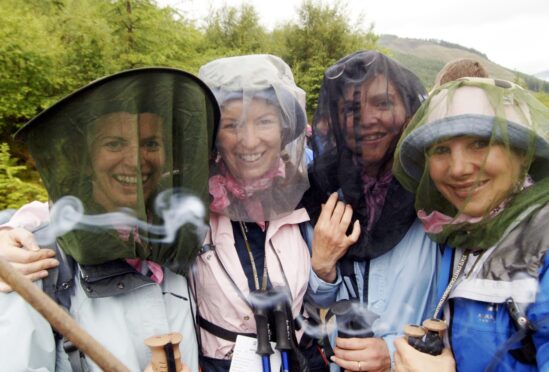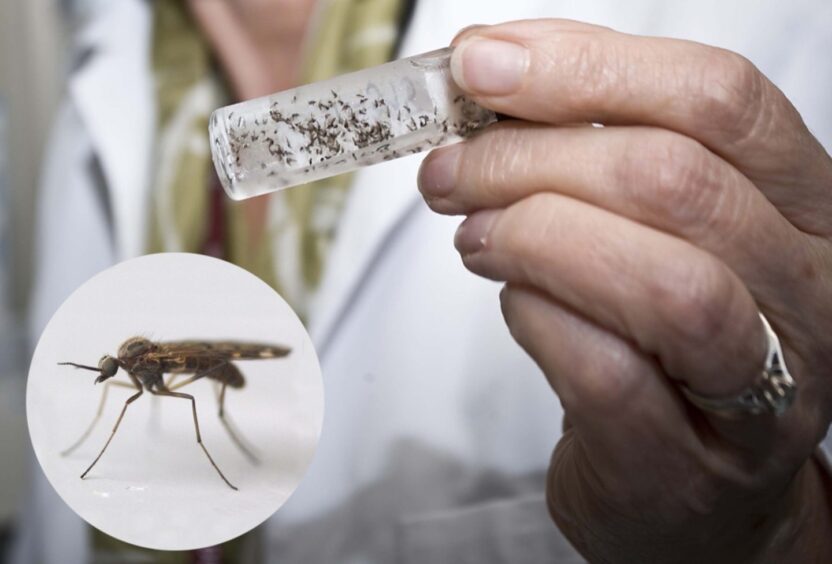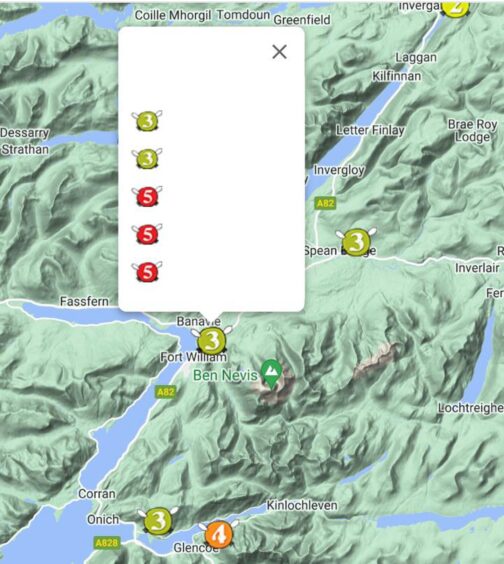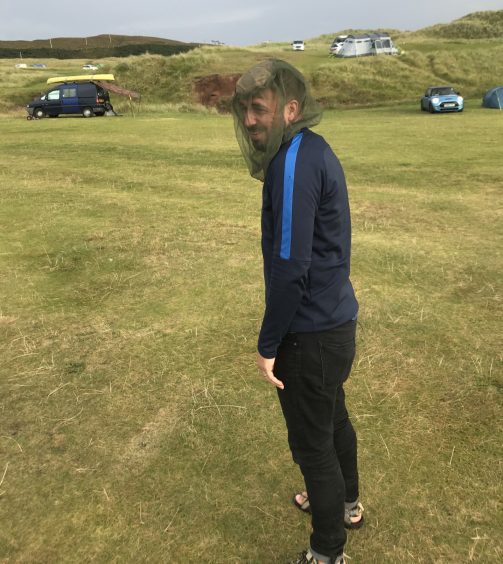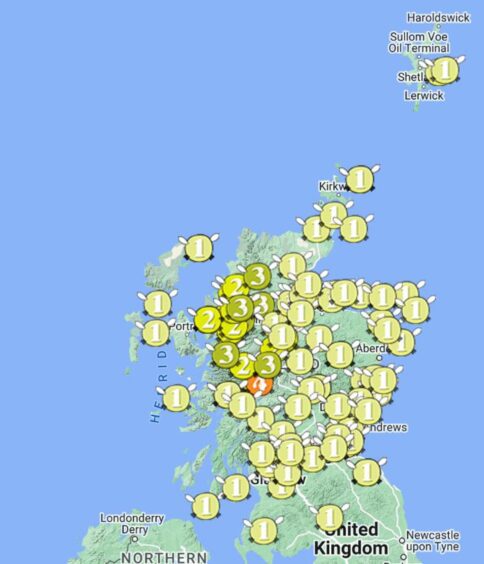Whoever said “nothing is certain only death and taxes” never holidayed in Scotland. For one more thing is all but guaranteed: an encounter with the minuscule but menacing Highland midge.
After a manic May but less bitey-June, today scientists from the Scottish Midge Forecast have predicted several locations across the Highlands and Islands are once again about to become midge minefields.
Here’s all you need to know about the tiny terrors and where you’re most likely to find them.
Is a midge a Scottish mosquito?
While midges have similar hobbies and interests to their less mild-mannered mossie friends (see: blood sucking and biting), the Highland midge (culicoides impunctatus), found throughout the UK, northern Europe, and even parts of China, is not actually a mosquito and does not spread disease such as malaria.
However, like a mosquito, a midge’s bite will almost certainly cause itchiness and irritation.
Are there midge hot spots?
Yes, when conditions are optimal some places see more midge masses than others.
The Scottish Midge Forecast is created using data collected from biting midge traps and mini-weather stations dotted across the country. Along with additional weather forecast data, scientists generate a “big picture” of midge levels across Scotland at any given time.
“It’s quite commonly known that the west coast of Scotland is more of a midge hot spot than the east, but in reality there are midges everywhere. It’s just that when conditions are optimal for them, we see a rise in how many there are at any one time,” said Jay Hutchison of APB Biocontrol, one of the Scottish scientists behind the midge forecast.
Currently, Glencoe, Fort William, Lochcarron and Ullapool are seeing higher numbers of biting midges than most of the country. Even Stornoway could see a moderate spike before the peak in August.
The wetter the better for midges?
According to Visit Scotland midges love humid and damp conditions, as well as shady spots.
Marshlands, grasslands, forests and woodlands are known midge hang-outs. As are the banks of rivers, ponds and lochs.
“We’ve likely seen a decrease in numbers in June because it was colder and wetter than normal,” added Jay. “When the rain is too heavy or the wind too strong they can’t survive.
“But when it all settles down and it’s a wee bit warmer, a bit more humid and overcast… they love that. Meaning Scotland offers the perfect conditions.”
So depending on weather, the midge season lasts from April to Septemeber, but can begin sooner and end later.
Are some people midge magnets?
All midges are attracted to CO2 when humans breathe in and out but a 2010 study involving Aberdeen University revealed that the Scottish biting midge could have a preference for tall men and larger women.
A report at the time added: “Larger people would provide a more substantial visual target for host-seeking midges as well as greater amounts of heat, moisture and attractant semiochemicals.”
Speculation that eating strongly flavoured foods such as garlic and onions could thwart the mini-beasts was refuted, however.
Can you avoid midges?
To avoid a trip to beautiful Ballachulish being remembered as Ballachul-itch there are things you can do to fend off midges.
WestHighlandWay.com advises those hoping to trek through Scotland to avoid dusk and dawn.
However, if you do want to experience some of the country’s most breathtaking scenery by sunrise or sunset there are other tried and tested methods.
Aside from using repellent sprays and creams, covering up as much exposed skin as possible, wearing light coloured clothing helps.
“Midge nets are also great but you have to make sure it is a midge net and not a mossie net. Midges can get through mosquito netting,” explained Jay.
Other known deterrents are smoke from campfires and burning citronella candles.
Rory Browne from Ballachulish Vistor Centre and cafe encouraged tourists to keep coming.
“I’m an Aussie and I’m used to them (the midges) now. Just prepare and plan. It would be such a shame to miss out on this beautiful part of the world because of the midges.”
How do I treat a midge bite?
For most people midge bites will be more annoying than irritating or painful, however, NHS Scotland advises washing areas affected by bites with soap and water quickly.
A cold compress can be used to reduce any swelling and painkillers such as paracetamol or ibuprofen can be taken.
If you have a more serious reaction, your GP or pharmacist may advise additional treatments including the use of an anti-histamine.
